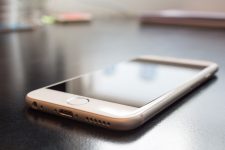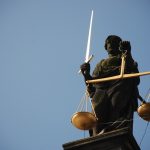FBI Cracks Apple’s Encryption

In case you missed it, Apple has been embroiled in a legal battle with the United States Justice Department, who wanted the computer giant’s assistance to unlock an iPhone belonging to one of the gunmen involved in a terrorist attack at San Bernardino, California.
The attack, which occurred in December last year, involved a mass shooting and attempted bombing. It claimed the lives of 14 people and seriously injured another 22. Syed Rizwan Farook and Tashfeen Malik, the married couple who carried out the attack, fled the scene in an SUV and were killed in a shootout with US police four hours later.
When the FBI and US prosecutors found that Farook’s phone could not accessed due to Apple’s locking device, the Justice Department obtained a court order compelling Apple to assist in unlocking the phone.
Apple fought the order, arguing that creating software that could unlock the phone would breach the company’s constitution and compromise the privacy of its worldwide customer base.
In a message to Apple customers, CEO Tim Cook said:
“The United States government has demanded that Apple take an unprecedented step which threatens the security of our customers. We oppose this order, which has implications far beyond the legal case at hand.”
While many Americans agreed their right to privacy must be protected, even in such distressing circumstances, others argued Apple’s refusal to assist the Justice Department was disrespectful to the San Bernardino victims and threatened national security.
Mr Cook acknowledged the controversy.
“While we believe the FBI’s intentions are good, it would be wrong for the government to force us to build a backdoor into our products. And ultimately, we fear that this demand would undermine the very freedoms and liberty our government is meant to protect,” he said.
At the time, FBI director James Comey said Apple was the only way it would be able to use the vital piece of evidence to further its investigation, noting that if the government was successful in its case against Apple, it may set a precedent for others.
“Everybody should care about it, everybody should want to understand. If there are warrant-proof spaces in American life, what does that mean and what are the costs of that?” he said.
Now, the Justice Department has filed court documents claiming it has devised a way to access the iPhone’s content and no longer requires Apple’s assistance.
Neither Apple nor the FBI have wavered in their respective arguments about customer privacy and the need enforce the law.
Federal authorities claim the new technique which allows access to the phone was only discovered only after the FBI’s high profile legal case against Apple began.
Aaron Levie is the co-founder and chief executive of cloud computing company, Box Inc., which previously filed legal documents supporting Apple’s position. He told the Washington Post the FBI’s withdrawal from the case was not a win for Apple, or anyone who cares about the implications for other matters.
“I can’t anoint any winner. This entire experience has brought to the fore a much bigger problem that remains unresolved,” he said.
Apple has already pointed to other examples where the government may be able to hack into its smartphones. Last week, Apple told the court that if the FBI was able to access Farook’s phone, it wanted to see if it could also be used to unlock an iPhone used by a drug dealer in a Brooklyn, which operated on an earlier operating system.
While the US Government says it can only open a phone running iOS 9, Apple told the court it would like the opportunity to test that claim.






